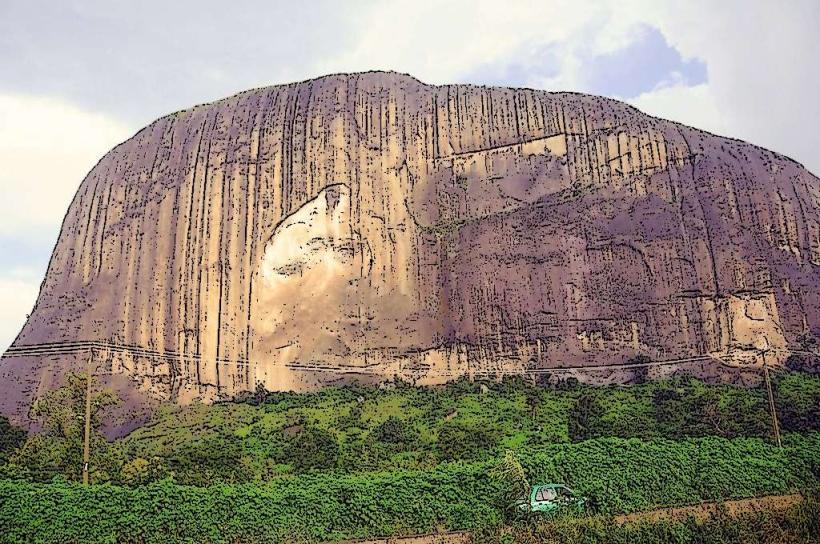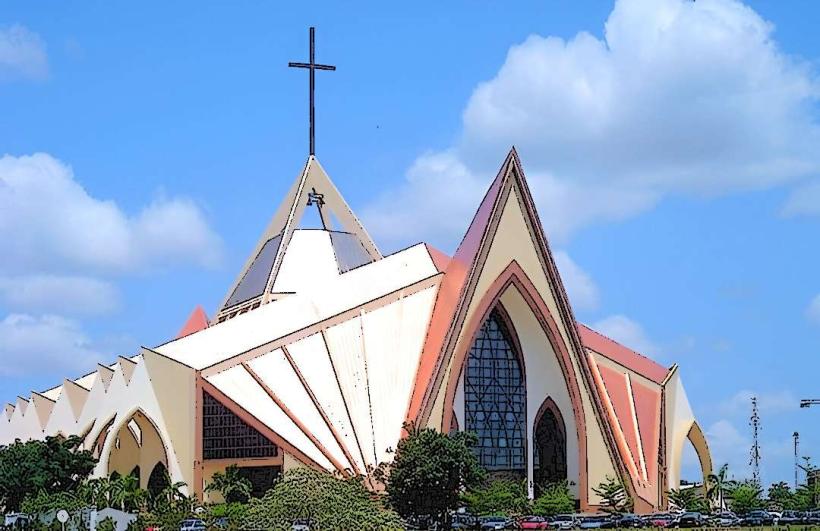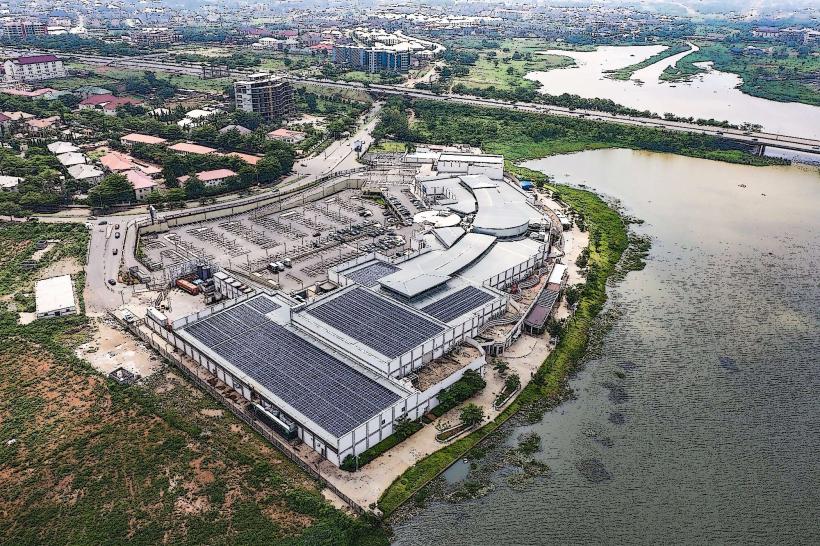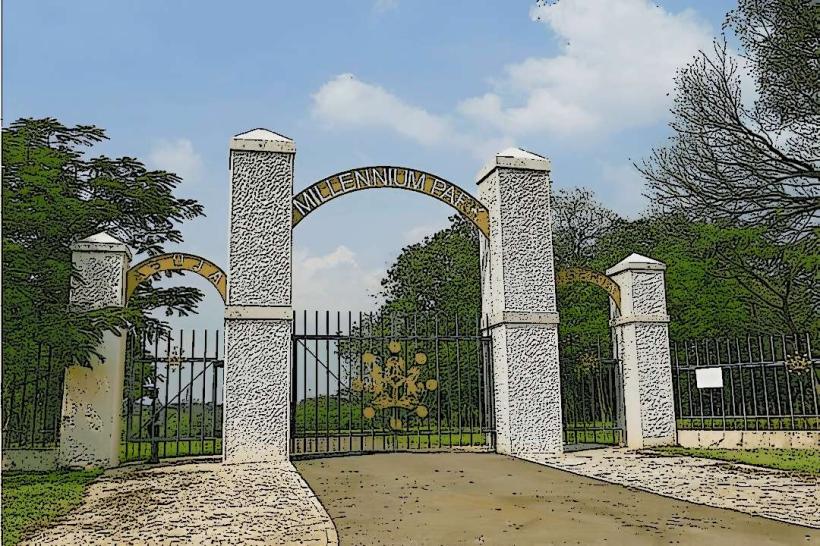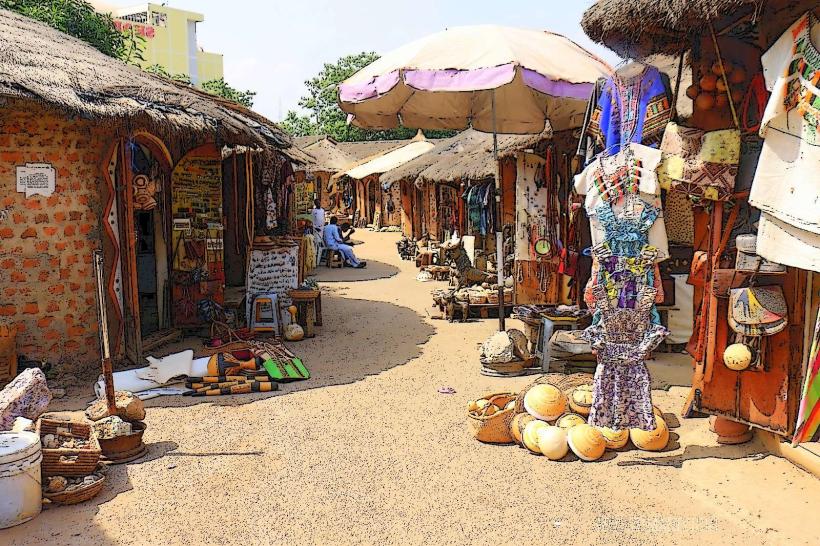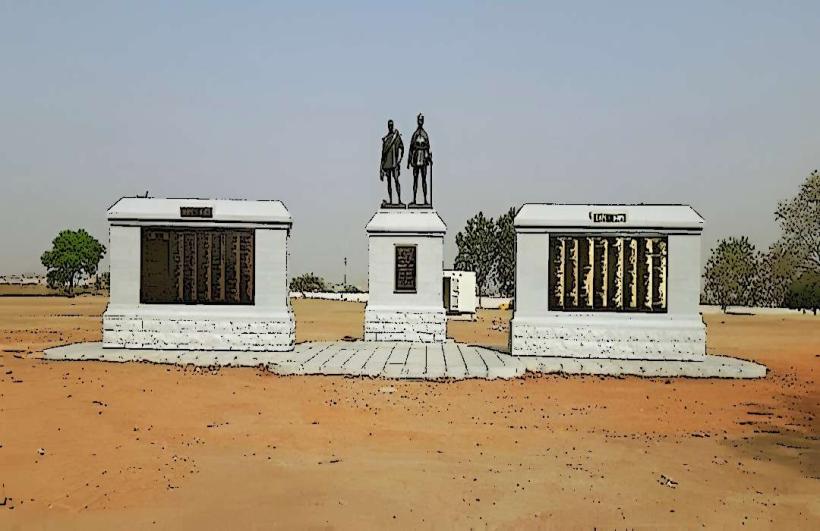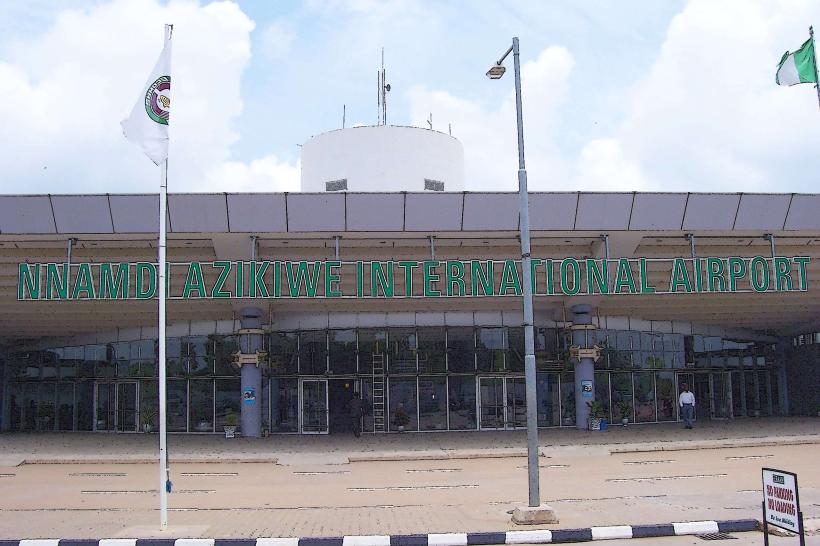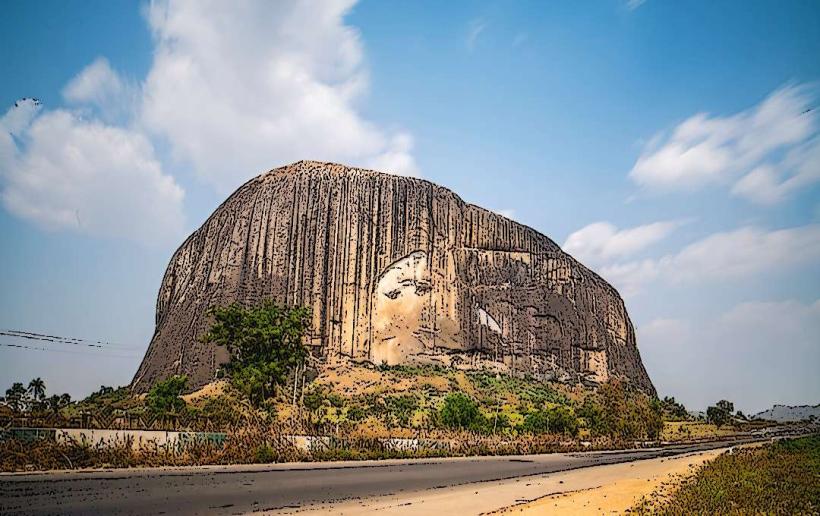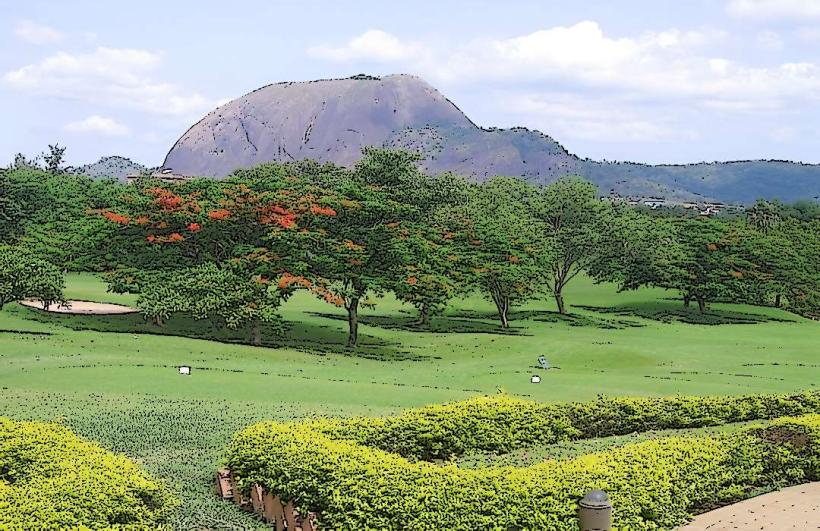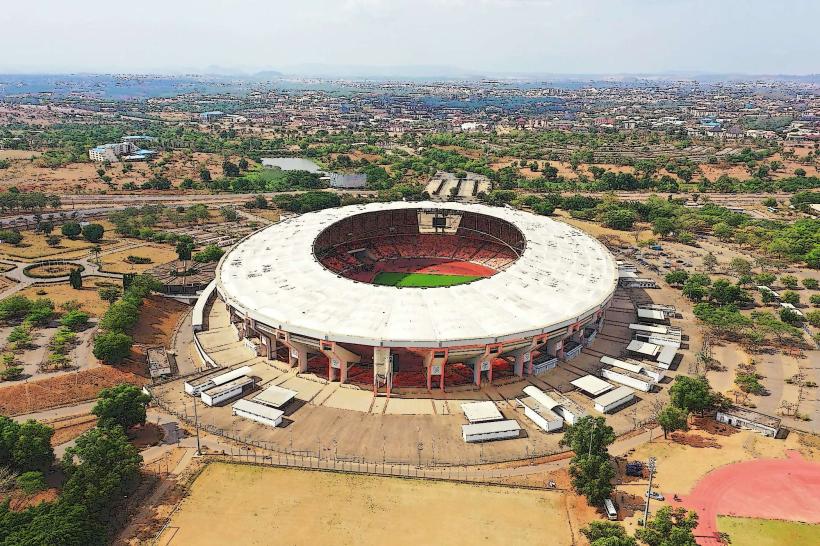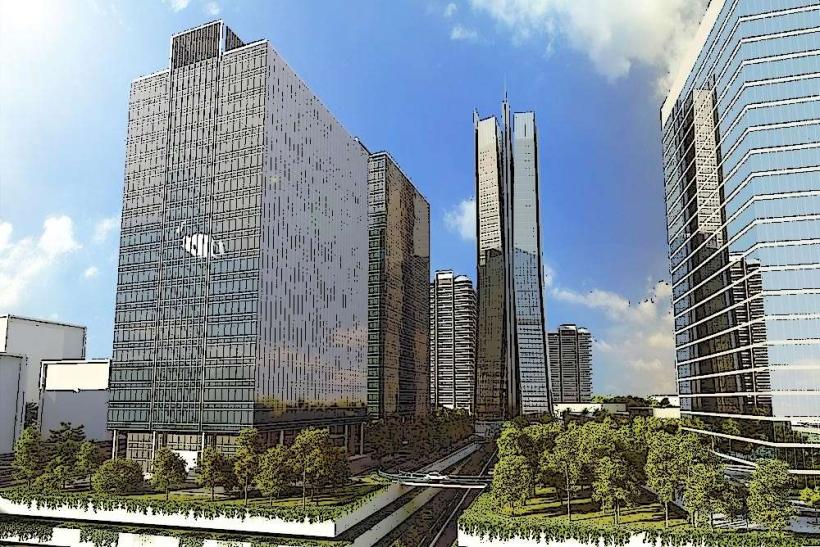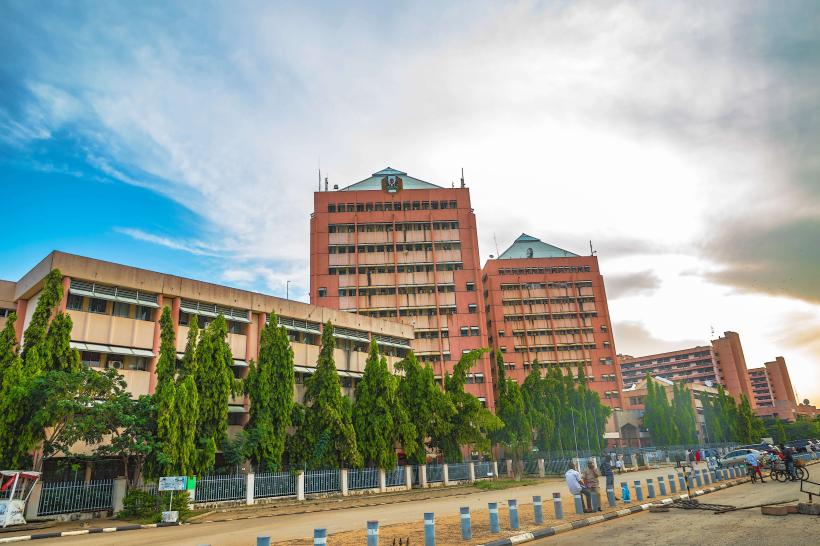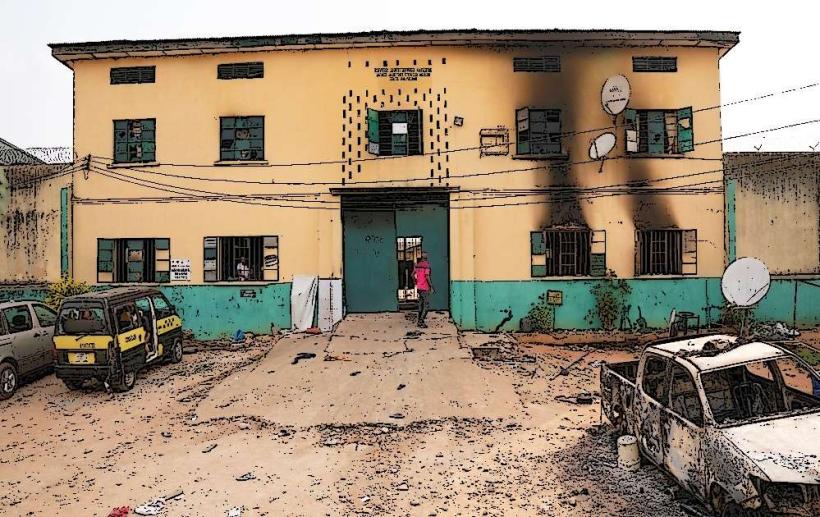Information
Landmark: National Mosque of NigeriaCity: Abuja
Country: Nigeria
Continent: Africa
National Mosque of Nigeria, Abuja, Nigeria, Africa
The National Mosque, formally known as the National Mosque of Nigeria, is one of the largest and most significant mosques in West Africa. It is located in the capital city of Abuja, Nigeria. Here are the key details about the National Mosque:
1. Architectural Features
Design: The mosque is designed with a unique architectural style, blending traditional Islamic and Nigerian elements. It features a grand dome, four towering minarets, and intricate Islamic designs that emphasize symmetry and elegance.
Size: The mosque is one of the largest in Africa, with a capacity to hold up to 15,000 worshippers in its main prayer hall. The overall complex is expansive and includes additional spaces for religious gatherings, administration, and community activities.
Minarets: The mosque is known for its towering minarets, which stand at a height of about 120 meters (394 feet), making them some of the tallest structures in Nigeria.
2. Location
Geographical Setting: The National Mosque is situated in the heart of Abuja, close to other significant landmarks, including the National Christian Centre and Aso Rock. Its central location makes it an important symbol of Nigeria's religious diversity and unity.
Coordinates: The mosque is located at approximately 9.0572° N latitude and 7.5007° E longitude.
3. Historical Significance
Construction: The mosque was commissioned during the administration of General Ibrahim Babangida in the 1980s and completed in 1984. It was built to serve as the central place of worship for Muslims in the capital and across the country.
Symbol of Unity: The mosque is one of Nigeria's most important religious landmarks, symbolizing the Islamic faith in a nation known for its religious diversity. It represents the Muslim community’s role in the cultural and political life of the country.
4. Role in Nigerian Islam
Religious Center: The National Mosque serves as a key center for Islamic religious activities in Nigeria. It is the primary venue for important prayers, especially during significant religious events like Eid al-Fitr and Eid al-Adha, attracting thousands of worshippers.
Leadership: The mosque is also the official residence of the Chief Imam of the National Mosque, a position that holds considerable religious and cultural influence within Nigeria’s Muslim community.
Educational and Social Activities: In addition to serving as a place of worship, the National Mosque is involved in various educational and social programs, including Islamic teaching, community outreach, and interfaith dialogue.
5. Interfaith and National Symbolism
Interfaith Dialogues: The National Mosque stands as a symbol of Nigeria’s commitment to religious tolerance and coexistence. It is located near the National Christian Centre, reinforcing the idea of religious harmony and cooperation between Nigeria’s Muslim and Christian communities.
Cultural Importance: The mosque plays an important cultural role in Nigeria, hosting dignitaries, religious leaders, and politicians. It also serves as a space for national reflection during religious holidays and major national events.
6. Visitor and Tourist Attraction
Tourism: The mosque is a popular site for visitors to Abuja. Though primarily a religious site, it is open to tourists, who are allowed to admire the architecture and learn about Islam’s influence in the country. However, visitors are required to dress modestly and respect local customs when visiting the mosque.
Symbol of National Pride: The mosque is frequently showcased in Nigerian media and is considered a national symbol of the country’s Muslim heritage. Its iconic architecture has made it one of the most photographed landmarks in Abuja.
7. Architectural Features and Materials
Building Materials: The mosque’s structure is made of concrete and reinforced steel, with the exterior decorated with traditional Islamic patterns. The large central dome is a defining feature, signifying the importance of the mosque in Islamic architecture.
Interior: The interior of the mosque is equally majestic, featuring ornate carpets, chandeliers, and intricate wall carvings that depict verses from the Quran. The prayer hall is spacious, with large arches and a cool, serene ambiance designed for reflection and worship.
The National Mosque of Nigeria stands as a prominent architectural and spiritual landmark, symbolizing the Islamic faith in the heart of Nigeria. It not only serves as a place of worship but also plays an essential role in promoting national unity and religious dialogue.

